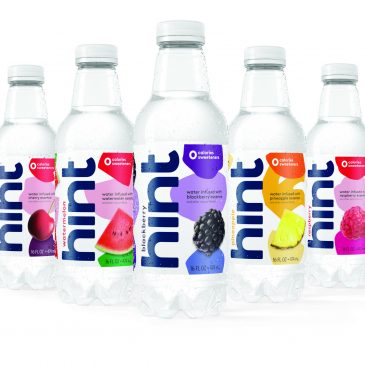Purpose At Work
Purpose At Work: How Hint Water Leverages Purpose and Gains Market Share
No brand is exempt from the rising tide of scrutiny from consumer and media activists. Armed with information from the web and connectivity through social media and smartphones, consumers have become increasingly knowledgeable and vocal about what brands are selling and how they are making it. This has meant brands must become more authentic, transparent and accountable at the same time as Millennials and Gen Z consumers expect them to be more purposeful, creating an ever-present risk of being called out for falling short of your claims. The attack on Chipotle in the New York Post on Thursday is but the latest in a long line of brands to be challenged in both traditional and social media at a potentially great cost to their reputation and customer loyalty.
Emboldened by the dramatic events of the Arab Spring Revolution, the Occupy Wall Street movement, and countless examples of consumer activism that have followed, today’s media landscape is a battlefield between integrity and transparency. Recent casualties include Seaworld over animal cruelty, McDonald’s over Happy Meal designs, Restoration Hardware over environmental responsibility, Nestle over water privatization, LEGO over its partnership with Shell, UBER over its treatment of women drivers, to name but a few. Brands have responded by mitigating the risks by redesigning products such as Chick-fil-A committing to anti-biotic free chickens, CVS banning tobacco products, Walmart and Target forcing suppliers to eliminate toxic ingredients, General Mills going GMO-free with their Cheerios and Nestle phasing out artificial colors and flavors. Such dramatic steps show how seriously brands take threats to their reputation and customer loyalty and how wary brands are of the power of social media to amplify negative exposure.
In Chipotle’s case, The Center for Consumer Freedom is attacking the brand’s hypocritical marketing. Their full-page advertisement in Thursday’s New York Post depicts a smiling, shirtless, overweight young man flexing one arm and resting the other on his ample tummy with text below the picture that reads: “Eat two ‘all natural’ Chipotle burritos a week and you could gain 40 pounds in a year.” The Center for Consumer Freedom is the lobbying organization to former New York Mayor Bloomberg’s efforts to ban sales of large, sugary sodas and laws that restrict smoking and argues on its website that the company is hypocritical for making claims like its food is GMO and antibiotic-free. Chipotle spokesman Chris Arnold responded by saying the ad is “a deliberate effort to smear us. These are agenda-driven people who are being backed by unknown parties. It doesn’t matter who they are as long as they pay.”
The soundest strategy in such a volatile consumer and media landscape is to mitigate the risk of such attacks by recognizing the following:
If you are interested in learning how to positioning your brand to avoid consumer activism and unlock the power of customer advocacy to build your brand and business, join us at the We First Brand Leadership Summit on Oct 6-7 at the W Hollywood. You’ll learn directly from top global marketers as to how they protect and promote their brands, and you’ll walk out with an actionable Social Branding Blueprint in your hand that serves as your social marketing roadmap for 2016. The Summit is limited to 200 guests so don’t wait and every attendee gets to invite her or his favorite non-profit for free. To book your individual and group tickets, visit WeFirst15.com

Purpose At Work: How Hint Water Leverages Purpose and Gains Market Share
This Time It’s A Political Brand Identity That’s Getting Fired
10 Resolutions for Making Purpose Your Brand’s Priority In 2016

